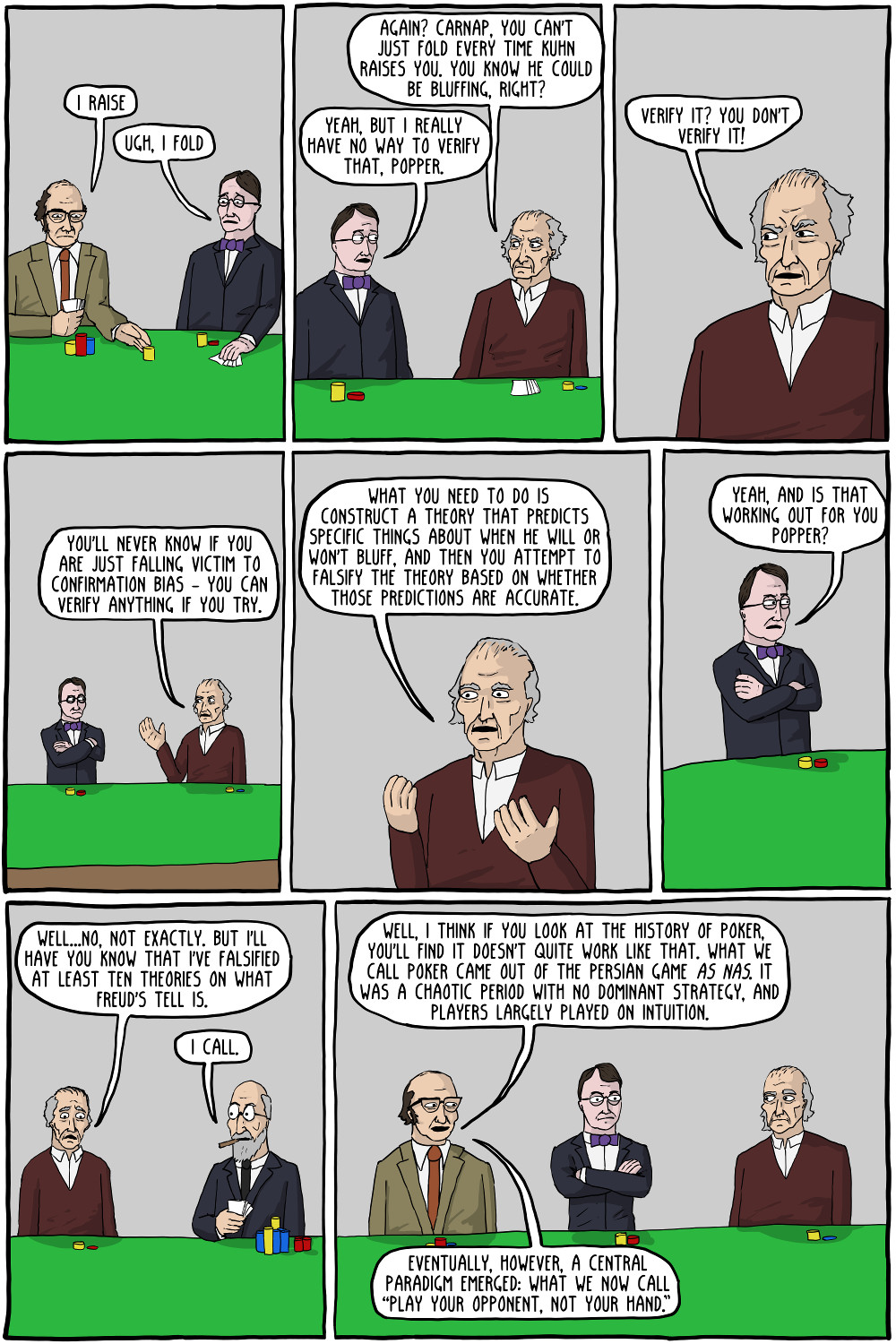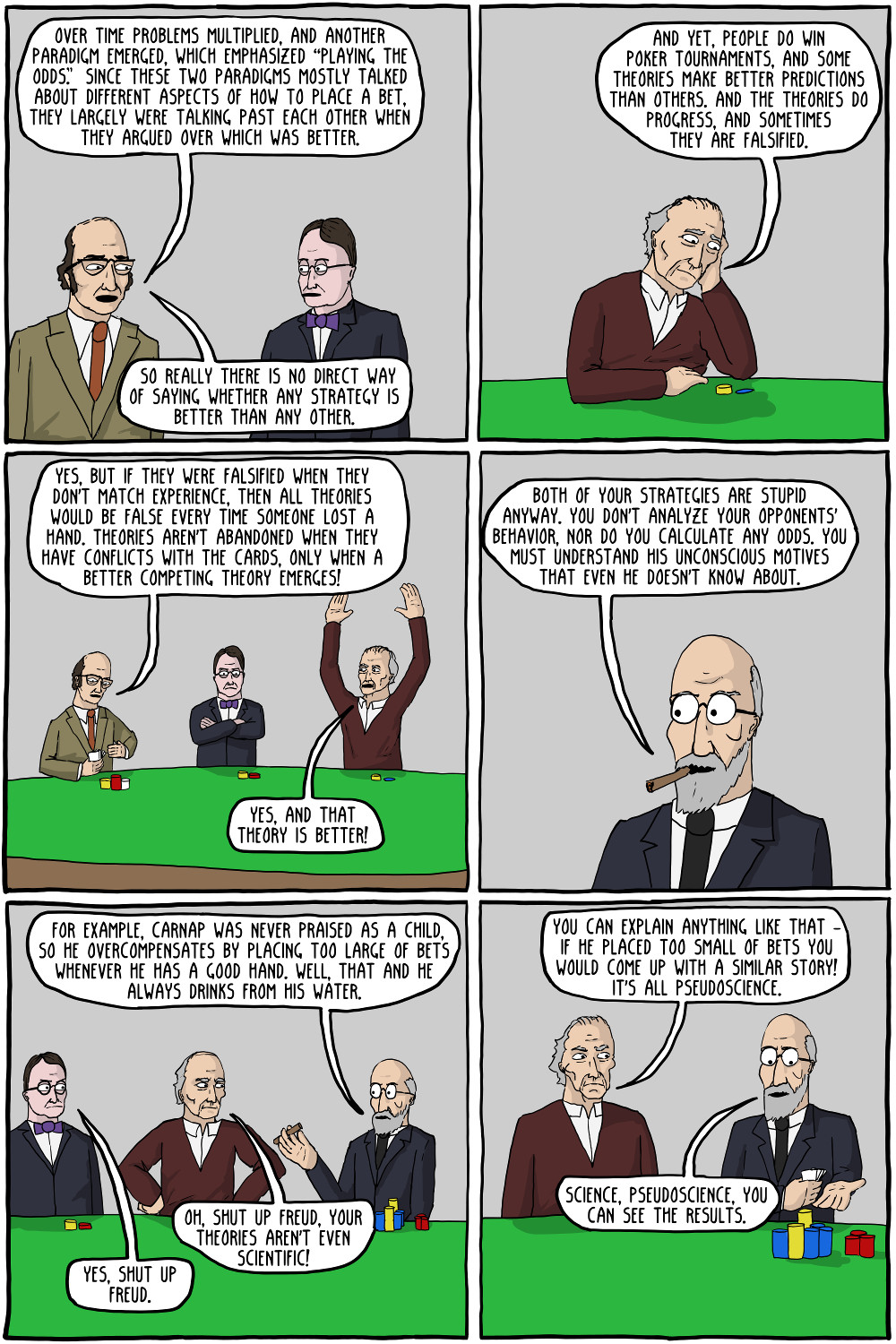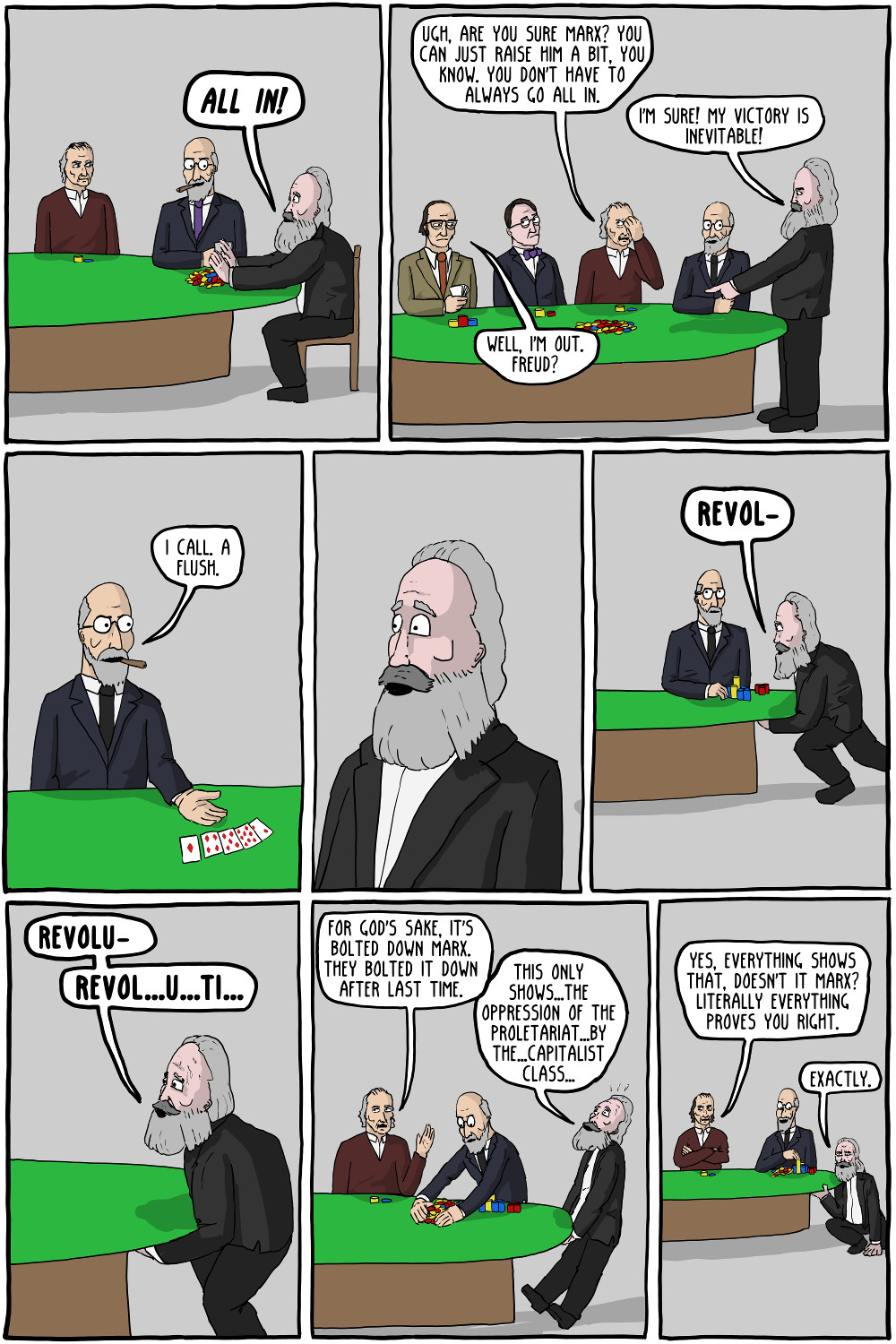


Karl Popper was a 20th century philosopher of science, best known for his work on falsifiability. He was critical of the ideas put forth by previous philosophers such as Carnap, that science works by verifying your theories through examination of the world. He said that many theories that were not scientific could be successfully verified by either making vague predictions, or through ad hoc adjustments to the theory. For example a horoscope can predict something vague like "you will have a pleasant surprise later this week". Then you find some forgotten money in your pocket, and the horoscope was seemingly verified to be true! However since nearly anything could have verified it, since it was so vague, this does not count as science. He was particularly critical of Freud's theory of psychoanalysis and Marx's theory of historical materialism, both of which were considered scientific by many at the time, but seemed to explain almost all sets of observable data. Instead he suggested that scientific theories must put forwards highly specific predictions, and the scientists must then work to falsify, rather than verify, the theory.
Kuhn was a fairly radical philosopher of science, whose major work in the 1960s, The Structures of Scientific Revolutions, claimed that science did not progress in a straightforward way by the accumulation of facts. Instead it worked by having large paradigms which governed scientific thought, such as Newton's theory of gravity. Scientists then work to try to fit nature into the scope of the paradigm. He said that scientific theories are not falsified in the way Popper described, because all theories have open problems in which the theory does not correspond with nature. Instead, as the problems accumulate, a competing paradigm emerges and scientists eventually abandon the old theory for the new one, such as Einsteins theory of Relativity, which largely replaced Newton. He said that scientists will not abandon a theory, no matter how many problems it has matching with nature, until a new competing theory emerges. Most controversially, however, he said that since the vocabulary and basic assumptions of competing theory don't talk about the same things, there is no way to directly compare which theory is better. For example, "energy" simply doesn't mean the same thing for Newton and Einstein, so there is no experiment you can run to decide on the properties of "energy", and which is more accurate. He claimed that science, like evolution, progresses towards nothing in particular, contrary to the common view that it progresses towards the Truth.
Permanent Link to this Comic: https://existentialcomics.com/comic/49
Support the comic on Patreon!










